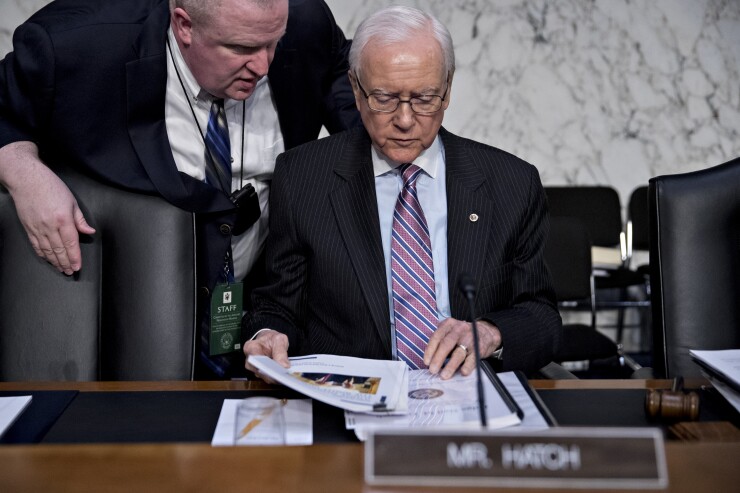WASHINGTON – "Email Orrin" could become the catchword for the latest installment of the longtime effort to build public support for comprehensive federal tax reform.
Senate Finance Committee Chairman Orrin Hatch, R-Utah, announced on Friday that he wants “experts and stakeholders” with ideas for tax reform to email his committee by July 17.

He made the request in a
-- Reform of the individual tax code to provide “tax relief to middle-class individuals and families;’’
-- Lowering tax rates for small and large businesses by “broadening the relevant tax base in order to put the economy on a better growth path and create job;.’’
-- Eliminating “disincentives for savings and investment;’’
-- “Updating our international tax system in order to make our nation more competitive in the global economy and preserve our tax base.’’
Suggestions should be emailed to
“After years of committee hearings, public statements, working groups, and conceptual exercises, Congress is poised to make significant steps toward comprehensive tax reform,” Hatch said. In fact, Hatch launched five bipartisan working groups of Senators on tax reform during the last Congress and asked that comments be sent to those groups.
Hatch’s appeal comes at a time when top Republican lawmakers have been meeting behind closed doors with the Trump administration to fashion a tax package that will broaden the tax base and lower tax rates.
It’s unclear exactly what will be in or out of the final product. Members of the Municipal Bonds for America coalition were assured by a White House staffer earlier this month and by President Trump last year that the tax exemption for municipal bonds would be preserved.
Hatch’s tactic of seeking broad public input is reminiscent of the “write Rosty’’ plea made by House Ways and Means Committee Chairman Dan Rostenkowski in May 1985. The Illinois Democrat, who chaired the committee with jurisdiction over tax policy, was echoing a public appeal made by Republican President Ronald Reagan. Rostenkowski and Reagan were among the leaders in the bipartisan effort that led to landmark tax legislation in 1986.
Efforts over the ensuing 31 years to duplicate that public appeal for a bipartisan consensus haven’t been successful.
Before Hatch's last call for ideas, the website TaxReform.gov was announced in 2013 by Democratic Sen. Max Baucus of Montana, who served as chairman of the Senate Finance Committee, and Republican Rep. Dave Camp, who served as chairman of the House Ways and Means Committee. Baucus and Camp asked the public to submit stories and suggestions.
But tax reform never came to the top of congressional and White House agendas.
President Trump made tax reform a key campaign pledge last year, but the deliberations to date have been behind closed doors without input from Democrats and have not resulted in any agreement among Republicans.
Hatch’s effort to build public support won’t hurt, two tax experts said Friday.
“Current tax writers seem on track for passing a tax cut labeled as tax reform,’’ said Len Burman, a co-founder of the Tax Policy Center and former Treasury official during the Clinton administration.
Howard Gleckman, a senior fellow in the Tax Policy Center, said he believes “tax reform has been dead for a while.’’
“Each of the major revenue raisers seems to be disappearing,’’ Gleckman said, citing the opposition to eliminating the major deductions and exemptions that would have to be used to broaden the tax base.





